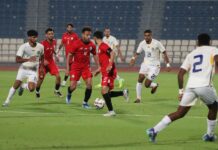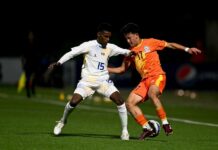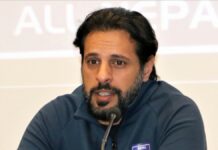Ivory Coast finally won the African Nations Cup after a decade of close calls as they edged neighbours Ghana 9-8 on penalties after a goalless draw following extra time in Sunday’s final at Estadio de Bata.
Goalkeeper Boubacar Barry converted the decisive spot kick to deliver the trophy for a country who had been heavily fancied for the previous five tournaments but flopped in all of them.
It was a second title for Ivory Coast whose only previous success came when they also beat Ghana in a similar post-match marathon shootout 11-10 in Dakar in 1992.
Their triumph came on a night when 22 people died outside an Egyptian soccer match after security forces barred fans from entering the stadium, the public prosecutor’s office said.
Most of the dead were suffocated when the crowd stampeded after police used teargas to clear the supporters trying to force their way into a league match between two Cairo clubs, Zamalek and Enppi, doctors and witnesses said.
The trouble highlighted the problems facing African football and overshadowed the thrilling climax to the Nations Cup tournament in Equatorial Guinea, who stepped in as hosts after Morocco was stripped of the hosting rights.
A total of 22 kicks were needed to settle the 2015 title with the Ivorians missing their first two attempts.
It came down to the keepers to settle matters after all the outfield players had taken a penalty each with the score at 8-8.
Barry, who was only playing because of injury to Sylvain Gbohouo, saved from Ghana goalkeeper Razak Brimah and then, after requiring treatment for an injury, got up to slot home the decisive spot kick.
Victory for the Ivorians also handed Frenchman Herve Renard the distinction of becoming the first coach to win the Nations Cup with different countries after success with Zambia in 2012, when they edged the Ivorians in a shootout.
“We had a team with the right fighting spirit and we rode our luck a little,” said Renard.
An exhausted Yaya Toure looked more relieved than elated, saying: “I just want to go home and celebrate with my family and friends. It’s taken a long time for us to get here.”
FEW CHANCES
Two hours of action delivered few chances as the tired-looking teams fought out an error-strewn midfield battle, although Ghana’s Christian Atsu came close to scoring with a snapshot that hit the post after 26 minutes.
Yaya Toure had the game’s first effort on goal after 10 minutes but his free kick went straight into Brimah’s arms.Gervinho fed Max Gradel with a clear chance on the right of the attack soon after but he blasted a hurried shot wide.
Ghana’s first effort was inches away from a goal as Andre Ayew weaved across the penalty box before feeding Atsu, whose first time shot hit the upright before bouncing back into play.
An Ivorian mistake gave Ghana the first chance of the second half with Atsu speeding away before passing inside to Asamoah Gyan, who was off target with his effort.
Gyan had been doubtful for the final with a pelvic injury but passed a late fitness test.
Mubarak Wakaso blasted over the top with a strong effort from well outside the penalty area midway through the second half as the midfield stranglehold kept chances to a minimum.
However, Atsu’s strong running down the right tested the Ivorian defence again when he provided Gyan without another chance after 72 minutes but it was blocked.
As the game approached 90 minutes a scramble in the Ghana penalty area, after Brimah could only parry the ball, gave Ivorian substitute Seydou Doumbia a half-chance but he too was thwarted by a quick defensive recovery.
Doumbia missed another half-chance at the start of the second half of extra time when striker Gervinho found a second wind and the game had to go to penalties to separate the teams.
Ghana’s agonising shootout defeat means they are still waiting for their first Nations Cup success since 1982.
“But I think we can be very proud of what we did at this tournament with you guys giving us no chance,” Ghana coach Avram Grant told reporters. “We have a team for the future here.”
Morocco were stripped of the tournament having asked for a postponement amid concerns over the spread of the Ebola virus and have been banned from the next two African Nations Cups.













